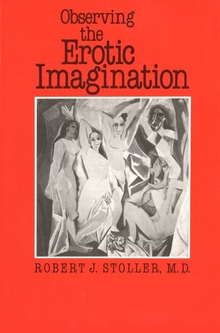The Supervisory Encounter
WARNING
You are viewing an older version of the Yalebooks website. Please visit out new website with more updated information and a better user experience: https://www.yalebooks.com
A Guide for Teachers of Psychodynamic Psychotherapy and Psychoanalysis
Daniel Jacobs, Paul David, and Donald Meyer
The authors of this book, who have supervised in a variety of educational settings and have taught students from a wide range of mental health disciplines, now provide a theoretical and technical framework for understanding and deepening the supervisory process. They clearly describe phases of supervision (from the opening session to termination), its goals, and the nature and purpose of a number of supervisory interventions. They delineate modes of thinking that are essential to being a good therapist and discuss how best to foster them. They demonstrate how supervision can be intimate, personal, and honest without becoming a form of therapy. Through clinical vignettes, they show how to diagnose impediments to learning and describe strategies for overcoming them. While providing an interesting history of supervision and a portrait of Freud as supervisor, they focus mainly on how newer theories such as self psychology, intersubjectivity, and an interactive two-person psychology influence the practice of supervision.
A selection of the Behavioral Science Book Club
"Psychoanalytic educators have been searching in vain for a comprehensive book that would be useful to address the practical problem of how to do supervision. This is such a book—an achievement of the first order."—David Sachs, M.D., University of Pennsylvania
"It is essential reading for those who supervise, those who wish to supervise, and those who are being supervised."—Joyce A. Lerner, American Journal of Psychology
"[This] will prove a treasure trove of information about New York City from prehistory to the present for both serious students and general readers."—John A. Drobnicki, American Reference Books Annual
"I strongly recommend The Supervisory Encounter as a reference textbook for new full-time and clinical faculty of academic departments."—James W. Lomx, Psychiatric Times
"A welcome addition to the sparse literature on the teaching and learning of psychodynamic psychotherapy. . . . The depth of scholarship and the authors' attention to detail of the supervisory encounter make this book an invaluable addition for both supervisors and students."—Anne Alonso, Journal of Psychotherapy Practice and Research
"A remarkable new book. . . . Essential reading for those who supervise, those who wish to supervise, and those who are being supervised."—Joyce E. Lemer, Journal of Psychotherapy Practice and Research
"The Supervisory Encounter successfully achieves what it sets out to do: understand the supervisory process and its vicissitudes. Each topic is explored in depth-modes of thinking, self-esteem, issues for both supervisor and supervisee, supervisory interventions, and termination. A well-written text which explores the complexities of the supervisory process as well as the broad aspects of the goals and techniques of supervision."—Constance C. Hendrickson, Journal of Analytic Social Work
"[A] thought-provoking book. . . . It will appeal largely to clinicians working within a broadly psychodynamic or person-centered framework. . . . A highly readable, very sophisticated, and practical volume on supervision that I recommend strongly to supervisors and supervisees alike."—Stanley B. Messer, Contemporary Psychology
"As a stimulus to thought, reflection and discussion of issues from an American, classical perspective, this is a rich addition to the literature."—Steven J. Wein, Journal of Psycho-Analysis
"In all the detailed elaborations of concepts in the chapters just mentioned and in the numerous illustrative clinical vignettes. . . that are almost all highly appropriate and very lucidly expressed, this book operates as a very practical 'how to' book in the best sense of that word, offering welcome guidance and suggestions both to neophyte and seasoned supervisors. . . . I can wholeheartedly recommend this present volume to all students and practitioners of supervision in any of the psychological helping professions."—Robert S. Wallerstein, Bulletin of the Menninger Clinic
"This is a book which deserves to be read and reread. Elsewhere I have recommended that a course on supervision be part of any psychoanalytic training program. This book would top my reading list."—Jean-Paul Pegeron, Psychoanalytic Quarterly
"The Supervisory Encounter is a smart book. It lays out the problem of supervision in a systematic way, illustrating principles with vignettes drawn from supervision of residents in psychiatric training, beginning psychotherapists, and advanced candidates at analytic institutes."—Arlene Kramer Richards, Journal of the American Psychoanalytic Association
"This is a thoughtful, well-written, and useful book. In fact, it would be useful to supervisors in any clinical discipline, regardless of their theoretical orientation."—Diane K. Shrier, News for Women in Psychiatry
"Jacobs, David, and Meyer, all experienced psychiatrists and teachers, have written a sophisticated yet highly readable book on supervision for clinicians who are interested in depth psychology and who supervise work primarily with individual patients. . . . The authors succeed in their stated goal of encouraging readers to better formulate their ideas on the supervisory encounter. For the psychodynamic clinician, this is the most thoughtful, engaging and useful book on supervision to come out in many years. It serves up old wisdom in a thoughtful and synthesizing manner and advances theory and technique to a new level."—Jane Thorbeck, Psychiatric Services
"The authors of this book who have supervised in a variety of settings, make a courageous and comprehensive attempt at providing a framework for understanding the supervisory process. The reader need not necessarily agree with all the points put forward, but the book certainly questions, challenges, and stimulates further thinking by any supervisor. . . . This book covers both well established and new areas of thinking about the supervisory process. It could very well serve as the reference book for a supervisor's discussion group."—Eng-Kong Tan, Australian Journal of Psychotherapy
Publication Date: September 23, 1997








